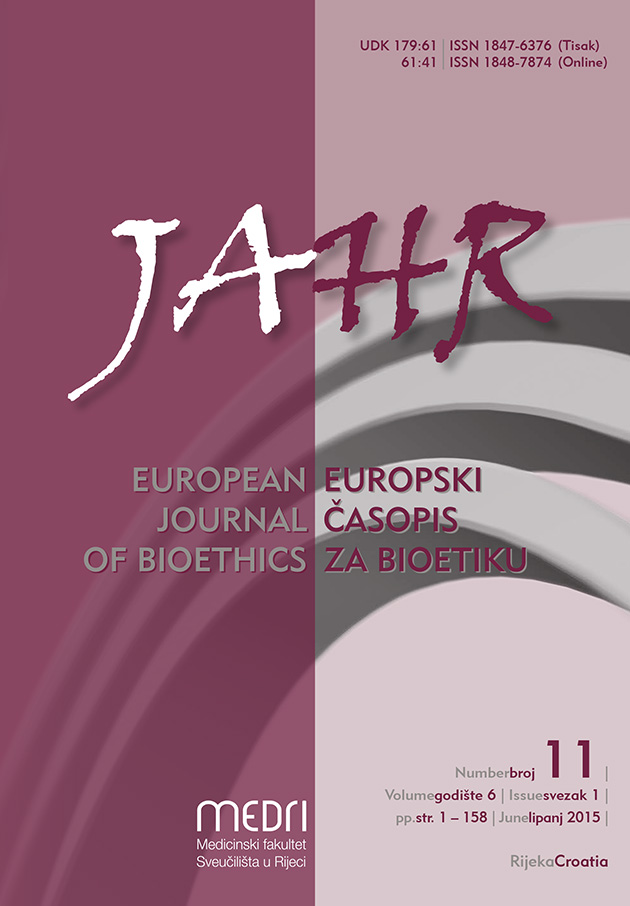Allogeneic versus Autologous: ethical issues in umbilical cord blood use
Keywords:
autologous, allogeneic, stem cells, cord blood, bankingAbstract
OBJECTIVE. To analyse some ethical issues involved in umbilical cord blood (UCB) collection, storage and use.MATERIALS AND METHODS. Ethical issues were addressed in the light of the well-known fundamental ethical principles for biomedicine: beneficence/non maleficence, respect for autonomy and justice. Specific issues that have been debated concerning the clinical utility of autologous use compared with allogeneic use for transplantation, the validity of informed consent, especially in private UCB banking, and finally the controversial question of private UCB banking for-profit compared to public UCB banking non-profit.RESULTS. Our ethical analysis has highlighted that the allogeneic UCB use for transplantation, compared to autologous UCB use, seems to fulfil the principle of beneficence/non maleficence as it provides “logistic” and clinical benefits and it decreases risks; the acquisition of informed consent requires some counselling, particularly for autologous collection; finally, public UCB banking seems to fulfil the criteria for justice more than private ones.CONCLUSION. Present and future therapeutic UCB possibilities for treating a wide variety of diseases need to increase the number of UCB units available. For this purpose, a “gift” culture and a “solidarity chain” between donors and recipients are requested. Moreover, in recent years, a further and emerging model of bank seems usable, i.e. “hybrid” banking.
Downloads
Published
Issue
Section
License
Authors who publish with this journal agree to the following terms:
- Authors retain copyright and grant the journal right of first publication with the work simultaneously licensed under a Creative Commons Attribution License that allows others to share the work with an acknowledgement of the work's authorship and initial publication in this journal.
- Authors are able to enter into separate, additional contractual arrangements for the non-exclusive distribution of the journal's published version of the work (e.g., post it to an institutional repository or publish it in a book), with an acknowledgement of its initial publication in this journal.
- Authors are permitted and encouraged to post their work online (e.g., in institutional repositories or on their website) prior to and during the submission process, as it can lead to productive exchanges, as well as earlier and greater citation of published work (See The Effect of Open Access).



